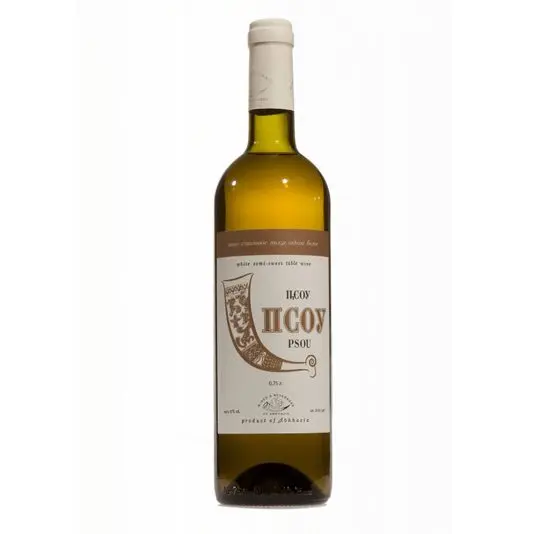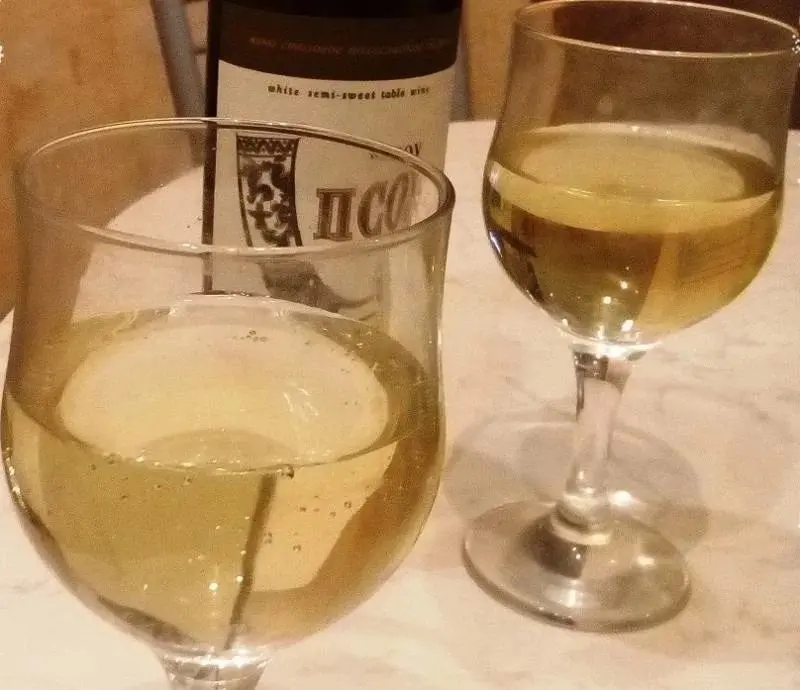Psou is an Abkhaz white semi-sweet wine with a pronounced grape flavor without astringency. The classic recipe for the drink provides for its production from Tsolikauri grapes grown in Abkhazia, although other varieties are currently used in production.
Abkhazian wines are often compared to Georgian ones, but their original taste is determined by the peculiarities of the terroir and other production technology.
The wine is named after one of the largest rivers in the region – Psou, which flows into the Black Sea.
Features of Abkhazian winemaking
Archaeologists have found evidence that developed winemaking existed in Abkhazia as early as the XNUMXrd millennium BC. e. The writings of the ancient historian and geographer Strabo mention the coastal towns of Pitius, Dioscuria and Zufu, which were active in trade and supplied wine to Western Europe via Genoa and Venice. During the heyday of the independent Georgian state, viticulture in the country was highly developed.
In the XNUMXth century, winemaking experienced a decline due to the domination of the Muslim conquerors, but then the inhabitants restored the plantings. Before the phylloxera epidemic, Abkhazia was one continuous vineyard, but fungal diseases destroyed most of the local varieties. It was possible to save the grapes of Kachichi, Tsolikauri, Krakhuna, Ojaleshi and a number of others, but before the epidemic there were much more of them.
Wine before the October Revolution in Abkhazia was produced by a primitive method. The grapes were harvested, squeezed into juice in a wooden winepress and left there for two days. Then this operation was repeated, the pomace was separated and the fermented juice was placed in clay jugs until ready. Long exposure was not common. Industrial winemaking was already established during the Soviet era.

How Psou wine is made
Psou wine has been made in Abkhazia since 1962. The recipe of Soviet winemakers prescribed the use of Tsolikauri grapes, but later the technology was changed. Now “Psou” is a blend of three varieties, the composition of the drink may include Aligote, Riesling, Sauvignon and Rkatsiteli. Grapes differ from Georgian in taste and aroma due to the characteristics of the subtropical climate of Abkhazia.
Grapes are separated from the ridges, mixed and immediately sent to a press to obtain juice, so as not to spoil the color of the finished drink with the skin. The wine ferments by gravity for a long time at a temperature of 13 to 20 ° C, then the must is placed in containers for aging. Clay jugs are used in home wineries, stainless steel tanks are used in industrial production.
Throughout the entire time of production, Psou wine is tried and brought to the desired state by changing the temperature or composition of the mixture. The process takes an average of 33-35 days. Then the drink is evaluated by the tasting committee and, after its approval, Psou goes to filtration, and then to bottling. There are cases when the wine becomes cloudy, then at the enterprise the drink is cleaned with a special clay – bentonite, which removes the sediment, but does not affect the taste.

The only official producer of Psou wine is the Sukhumi plant. The winery experienced a rebirth in 1999, when a global reconstruction and modernization was carried out. Investors financed the purchase of Italian equipment, containers for storing raw materials and finished products. The quality is controlled by our own laboratory. A significant part of the wine is exported.
How to drink Psou
The fortress of Psou wine is 11% vol., it is recommended to cool it to +8 – 10 °С before serving. The drink of light straw color with the aroma of flowers and fruits has a refreshing taste with a pronounced grape tint without excessive astringency.
Fish and vegetable snacks go well with Psou, aged cheeses, herbs and fruits will also be an excellent addition.










